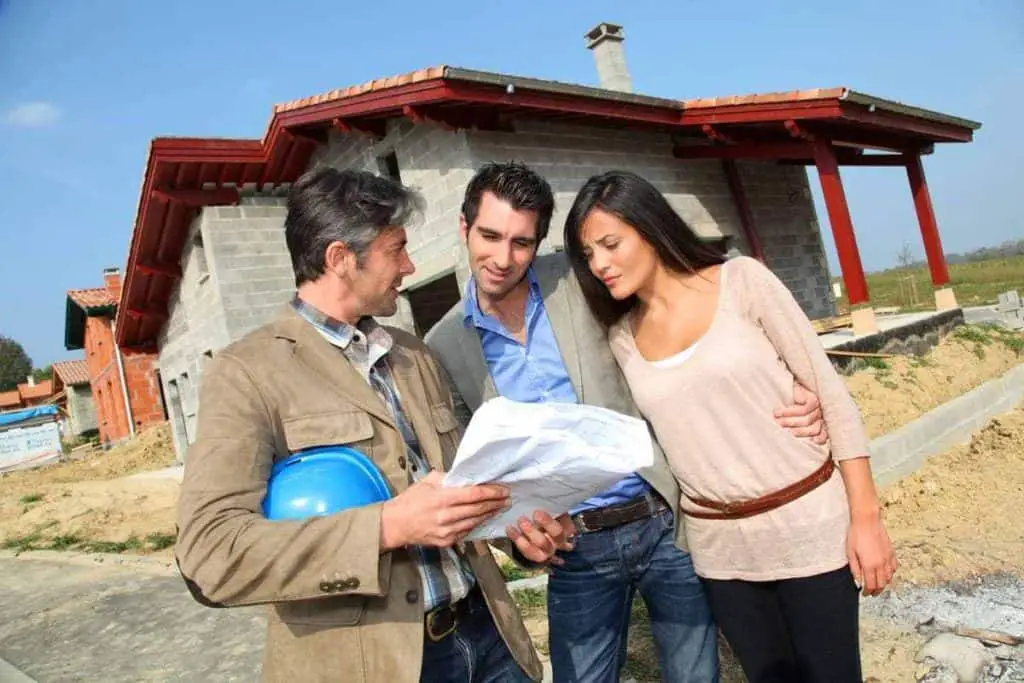(**) Disclosure: This post may contain affiliate links, meaning our company, JCHQ Publishing will get a commission if you decide to make a purchase through the links, but at no additional cost to you.
To become a real estate appraiser in Minnesota, you would begin working as a Trainee Appraiser, then work your way up toward other designations such as the Licensed Residential Appraiser, Certified Residential Appraiser, and the Certified General Appraiser.
You must fulfill the qualifying appraisal education, work experience requirement and register with the Minnesota Department of Commerce.
This department is the regulatory agency which governs individuals and companies that appraise the value of real estate, and also appraisal management companies (AMCs), in accordance with federal guidelines.
Minnesota resides over 5.5 million people and it’s a state with relatively sparse population. Minneapolis is the largest city, where 60% of the state’s population are within the Minneapolis-St. Paul metropolitan area. Then following behind are Saint Paul and Rochester.
As a real estate appraiser in Minnesota, your job is to provide an assessment of the properties’ market value for your clients. Your appraisal report could be used by a home buyer or seller, a mortgage lender who wants to understand the value of the collateralize assets, an individual who needs it for tax assessment or even lease negotiation.
Regardless of who is in needs of your appraisal services, your work products must remain objective, unbiased and professional.
The first step to your appraisal career is to complete the pre-licensing courses from a trusted education provider. McKissock received an incredible rating from its students, and their online lessons are taught by instructors who have actual experience in the appraisal industry. You may click here to find out more about their courses. (**)
How to Become a Trainee Appraiser in Minnesota?

To begin your journey as an appraiser, your first step is to become a Trainee Appraiser. At this stage, you will be trained and supervised by a certified appraiser. An experienced supervisor could guide you into the right direction in this career.
The supervisory appraiser should provide you with hands-on appraisal techniques, effective ways to research on a property, and how to analyze the data. Most importantly, how to determine an unbiased estimation of the property’s market value.
Your daily routine could include doing property research, working on appraisal reports, or inspecting real estate together with the supervisor.
To get out the most from this trainee stage, it is recommended you to walk through each and every step in the appraisal process, observe carefully on how your supervisor inspect and evaluate real estate, and always raise your questions.
5 Steps to Become a Trainee Appraiser in Minnesota
Step 1: Meet the Basic Requirement:
- You must be at least 18 years old
- Have a valid Social Security Number
- No prior related experience is needed
Step 2: Complete the Pre-License Education
You need to complete the 75 hours of qualifying appraisal-related education and the AQB Trainee/Supervisor course.
Study tip: Whenever possible, I prefer to take online courses. You can study at your own pace at the convenient of your home, library, or wherever there is internet access. Here’s an article review of an online school that I like.
Step 3: Submit Application to the Minnesota Department of Commerce
Now you have completed the education prerequisites, your next step is get your license. Here are more details.
Step 4: Pass the Minnesota Trainee Appraiser Exam
Minnesota is one of the few states that require their Trainee Appraiser to take an exam before getting the license. It must be taken within 24 months at the time you submit the application.
Doing multiple sets of practice questions is an excellent way to prepare for the exam and also boost your confidence.
Step 5: Find a Certified Appraiser to be Your Supervisor
So how do you find a mentor? You should begin networking with Certified Appraisers through the appraisal association in your city, online forums or even through social media. The more appraisers you talk to, the more opportunity you could find a supervisor.
Once you start working alongside with a supervisor, you and your supervisor would need to inform the Department of Commerce about the mentoring relationship. Your scope of practice is defined in the Minnesota Statutes.
You also need to keep track of your working hours with the standard experience log. This document is important for the purpose of upgrading your appraiser license in the future.
Keep in mind that you and the supervising appraiser are required to sign on every page of the experience log.
Here’s what I asked a Real Estate Appraiser Trainee about working with a supervisor

Jacob: “Is there anything you have learned in the field or from your supervisor that was not covered in the class?”
Katie: “Yes, I have learned so much through both my supervisor and working in the field. Through this, it has taught me how to properly measure a home, how to notice differences in materials used throughout the home, how to properly deal with clients (answering such questions that may come about or just overall explaining the process of how the appraisal works.)”
I conducted a full interview with Katie Holland, where she shared her journey and thought about the real estate appraisal industry. Be sure to check it out!
How to Become a Licensed Residential Appraiser in Minnesota?

As a Licensed Residential Appraiser, you can evaluate non-complex residential properties with 1-4 units, while the transaction value is cannot be more than $1,000,000. Although you can also evaluate complex properties, the maximum value is up to $250,000.
When working as a fee-based appraiser, you could be writing appraisal reports for clients such as individuals, lenders, banks, or appraisal management companies (AMC). Your job duties could include doing research online, going on the field to inspect properties, and writing the appraisal reports.
On the other hand, you could also be hired by an appraiser company or financial institution as their in-house appraiser, where you could enjoy the stable income and employee’s benefits.
This license could be worth considering for those who have not fulfilled the necessary work experience or college-level education to become a certified appraiser but wish to excel their career from the Trainee Appraiser.
5 Steps to Become a Licensed Residential Appraiser in Minnesota
Step 1: Meet the Basic Requirement
- You must be at least 18 years old
- Have a valid Social Security Number
- Hold an Associate Degree or higher. Or complete 30 semester credit hours covering specific subject topics.
Step 2: Complete the Required Hours of Working Experience
You must have at least 2000 hours of acceptable appraisal experience, where they need to be acquired for over a 12 months period.
Step 3: Fulfill the Education Requirement
You’ll need to complete 150 hours of qualifying appraisal education from an approved course provider.
You should have taken some of the courses when becoming a Trainee Appraiser, so that you are only required to fulfill the additional course works.
Step 4: Submit Application to the Minnesota Department of Commerce
Once you have fulfilled the education and working experience requirement, you should submit the application to the the Department of Commerce along with other necessary documents.
The Licensing Department in some states may require you to apply within a specific period after you complete the pre-licensing education. Therefore, don’t wait till it expires!
Step 5: Pass the Licensed Residential Appraiser Exam
Now it’s the time to write the exam! Most test centers would require you to bring at least two valid IDs to verify your identity. Don’t forget to bring them along. Else you won’t be able to write the exam.
Is real estate appraiser a good career? This is one of the common questions I hear a lot. Therefore, I spent months and months in connecting with different real estate appraisers. Here are their valuable insights about this profession. Make sure to check it out!
How to Become a Certified Residential Appraiser in Minnesota?

As a Certified Residential Appraiser, you can assess for:
- residential properties with 1 to 4 residential units regardless of the transaction value or complexity.
- non-residential 1-4 units property given that the transaction value is no more than $250,000
Just like a Licensed Residential Appraiser, you could a self-employed appraiser running your own practice, servicing clients such as individuals, lenders, banks, or appraisal management companies (AMC).
Alternatively, you could work for an appraiser firm or financial institution to become their in-house appraiser, where you could enjoy the stable income and company’s benefits.
However, there is no restriction on the transaction value of residential properties you could assess. The scope of your practice and business opportunity would be a lot wider than being a Licensed Residential Appraiser. In fact, many reputable lenders and financial institutions only accept assessment work from Certified Appraiser.
That being said, let’s review the steps for you to become a Certified Residential Appraiser.
5 Steps to Become a Certified Residential Appraiser in Minnesota
Step 1: Meet the Basic Requirement
- You must be at least 18 years old
- Have a valid Social Security Number
- Hold a Bachelor’s degree or higher
You need to complete a minimum of 2500 hours of acceptable appraisal experience in not less than a 24 months period.
Step 3: Fulfill the Education Requirement
You’ll need to complete 200 hours of qualifying appraisal education from an approved course provider.
Since you should have taken some of the courses when becoming a Trainee or Licensed Residential Appraiser, you are only required to complete the extra classes.
I included some details which could be helpful to your studying on our education resources page. Be sure to check it out.
Step 4: Submit Application to the Minnesota Department of Commerce
Once you have completed the education and working experience requirement, it’s time to submit the license application.
Most State Departments allow you to apply through their website. Some would even charge a lower registration fee by doing online. You should definitely check out this option.
Step 5: Pass the Certified Residential Appraiser Exam
Don’t try to cramp up all the study materials all at once. Study for 45 to 60 minutes, then take a break. Concentration tends to wander if you study for too long. If possible, focus on studying only one to two topics per day. But be really good at it.
To increase your chance in passing the exam on the first time, make sure to check out our exam hacks. In there, not only you will find the content of the exam, but also 10 effective tips on how to prepare for it.
How to Become a Certified General Appraiser in Minnesota?

So you want to explore appraising for commercial real estate? Then becoming a Certified General Appraiser would be the way to go!
This designation is the highest credential you could get in the appraisal industry. You could assess all types of real estate regardless of the transaction value or complexity. There is no limitation on the scope of your appraisal work.
Although you still could evaluate for residential properties, you could also be appraise a portfolio of commercial real estates for institutional investors.
Since your clients depend on your appraisal reports in making an informed investment decision, you must be extremely careful and responsible when handling your work. Extensive research and site inspections are often required. It is your responsibility to provide your clients with an objective appraised value as accurate as possible.
Due to the requirement of low margin of error in your work products, the amount of work experience and education required to become a Certified General Appraiser is the most challenging among all the levels of licensing.
But first you would need to become a Certified General Appraiser, so let’s go through the steps to get you this credential.
5 Steps to Become a Certified General Appraiser in Minnesota
Step 1: Meet the Basic Requirement
- You must be at least 18 years old
- Have a valid Social Security Number
- Bachelor’s Degree in any field of study; or higher
Step 2: Complete the Required Hours of Working Experience
You must have at least 3000 hours of acceptable appraisal experience where they need to be obtained for over a 30 months period. At least half of the working experience needs to be from non-residential appraisal work.
Step 3: Fulfill the Education Requirement
You’ll need to complete 300 hours of qualifying appraisal education from an approved course provider.
You should have completed some of the courses when the previous license(s). Therefore, you are only required to complete the extra classes.
Step 4: Submit Application to the Minnesota Department of Commerce
Once you have completed all the education and working experience prerequisites, you should fill out the license application.
Later in this post, I’ll go over the documents and fees needed for the registration process.
Step 5: Pass the Certified General Appraiser Exam
The final step is to pass the Certified General Appraiser Exam. Get enough sleep the night before the exam and have a good meal before it. Managing your stress level during the test is another key to passing it.
Is being a real estate appraiser a good career? – Let’s hear from an industry professional

“Currently, I am a Principal Commercial Appraiser with the Hennepin County Assessor’s office. My primary responsibilities are to value real property for tax petition purposes and provide expert witness testimony.
Prior to joining the public service sector, I was an independent fee appraiser who owned a residential appraisal firm and was a partner in a commercial appraisal firm. I have been a real estate appraiser for 26 years.
The appraisal industry has amazing opportunities in both the public and private sectors. The appraisal industry is especially well suited for entrepreneurs who wish to operate their own businesses.
Brett Hall, MAI, SRA, Principal Commercial Appraiser at Hennepin County
Is real estate appraiser a good career? This is one of the common questions I hear a lot. Therefore, I spent months and months in connecting with different real estate appraisers. Here are their valuable insights about this profession. Make sure to check it out!
What Topics are Covered in the Appraisal Pre-licensing Courses?
| Trainee Appraiser (Credit Hours) | Licensed Residential Appraiser (Credit Hours) | Certified Residential Appraiser (Credit Hours) | Certified General Appraiser (Credit Hours) |
|
|---|---|---|---|---|
| National USPAP Course or Equivalent | 15 | 15 | 15 | 15 |
| Basic Appraisal Principles | 30 | 30 | 30 | 30 |
| Basic Appraisal Procedures | 30 | 30 | 30 | 30 |
| Residential Market Analysis and Highest & Best Use | 15 | 15 | ||
| Residential Appraisal Site Valuation and Cost Approach | 15 | 15 | ||
| Residential Sales Comparison and Income Approaches | 30 | 30 | ||
| Residential Report Writing and Case Studies | 15 | 15 | ||
| Statistics, Modeling and Finance | 15 | 15 | ||
| Advanced Residential Applications and Case Studies | 15 | |||
| Appraisal Subject Matter Electives | 20 | 30 | ||
| General Appraiser Market Analysis and Highest & Best Use | 30 | |||
| General Appraiser Site Valuation and Cost Approach | 30 | |||
| General Appraiser Sales Comparison Approach | 30 | |||
| General Appraiser Report Writing and Case Studies | 30 | |||
| General Appraiser Income Approach | 60 | |||
| Total | 75 hours | 150 hours | 200 hours | 300 hours |
Keep in mind that you must take the AQB Trainee/Supervisor course before becoming a Trainee Appraiser.
Interested in becoming a real estate appraiser? Here is an Education Resources Page which could be helpful to you in getting the appraiser license.
How to register with the Minnesota Department of Commerce?

Once you have fulfilled all the prerequisites, you could submit your application to the Minnesota Department of Commerce. You need to register online through the Pulse Portal.
In additional to the application, you must provide the following:
- Registration fee
- Supporting legal documents
- Evidence which shows you have completed the required hours of Board-approved appraisal courses. (i.e., Official transcripts, course completion certificates).
- Proof that you have fulfilled the specific requirement of post-secondary education for your license (i.e.: Diploma, official transcripts, certificates.)
- Stated Approved Appraiser Experience Log (Only if you are applying to become Licensed/Certified Appraiser)
Once you complete the online application, you should email all the required documents to licensing.commerce@state.mn.us with the subject field “Appraiser Licensing”.
If you have any questions, you could contact the Minnesota Department of Commerce at 651-539-1599.
What is Format of the MN Appraiser Exam?

Once the Department accepts your application, they will send you a notice with instruction to schedule the exam. PSI will administer the exam, where you can take it on a computer at their examination center.
- Appraiser Trainee is a 3 hours exam
- Licensed Residential Appraiser Exam is a 4 hours exam,
- Certified Residential Appraiser Exam is a 4 hours exam;
- Certified General Appraiser Exam is a 6 hours exam
The licensed and certified exams consist of 125 questions. Only 110 questions will be scored, the other 15 are pretest questions. The required passing score is 75. You will immediately know your score once you finish writing the test.
The exam fee is $45. You could find out more details in the Minnesota Commerce Department Appraiser Examination Candidate Information Bulletin.
FAQ on Minnesota Real Estate Appraiser Career

How long does it take to become a real estate appraiser in Minnesota?
It takes 12 to 30 months to become a real estate appraiser in Minnesota. That is the minimum period to complete the work experience so the duration would hugely depend on which appraiser license you are pursuing, the time it takes you to complete the work experience, pre-licensing courses and pass the appraiser exam.
It takes 2,000 hours of work experience to become a Licensed Residential Appraiser in Minnesota, 2,500 hours to become a Certified Residential Appraiser and 3,000 hours to become a Certified General Appraiser.
How to renew a real estate appraiser license in Minnesota?
All real estate appraisers in Minnesota are required to renew their license online through the Pulse Portal every two year. An email reminder will be sent out to you.
In addition to the renewal application, below are the requirements to renew your appraiser license:
- Finish 30 hours continuing education every 2 years, of which must include 7 hours of National USPAP Update course.
- Note that starting in 2010, you are required to obtain the credit hours through online courses.
- But keep in mind that you cannot have more than 8 credit hours per day.
- Pay the renewal fee
To prevent interruption to your appraisal practice, you should renew it and complete all continuing education requirement before the license expiry date.
How much do real estate appraisers make in Minnesota?

Your income as a real estate appraiser depends on many factors such as your experience, licensing level, the type of properties you specialize in appraising, the company size, its location, and most importantly, the amount of effort you are willing to put into this career.
According to the Bureau of Labor Statistics (May 2021), property appraisers in Minnesota make an average annual income of $77,030. The yearly income range typically ranges between $60,040 and $102,600. Top earning property appraisers in Minnesota make over $166,410
Here’s a complete income guide on real estate appraisers in Minnesota. In there, I will uncover the income updates, the percentage of appraisers that are making a good living, starting salary of trainees, and whether being a commercial or residential appraisers has any effect on the income. So be sure to check it out!
Career Tips for Aspiring Appraisers in Minnesota
Tip#1: Take appraisal courses asap

You could read as much about the appraisal career as you want, but your journey would not begin unless you start taking action.
Taking the real estate appraiser classes would be your first step. Not only you could gain valuable knowledge and practical skills, but you will also have a better understanding about what is like to be an appraiser.
Besides, most states would require you to complete all the trainee education before your working experience could count toward the licensing requirement.
(Here’s a review of an appraisal education provider that thousands of students applaud.)
Tip#2: Build your network with other real estate professionals in Minnesota
Connecting with other appraisers in Minnesota is a good way to gain a better understanding about the appraisal industry. You could do so by joining industry affiliations, online forums or even LinkedIn groups. For instance,
- Minnesota Association of Assessing Officers
- AppraisersForum.com – Minnesota Forum
- The North Star Chapter of the Appraisal Institute
Begin with a friendly conversation. Let them know that you are starting your career as an appraiser, ask them if they have any tips or advice for newbies to the industry.
In addition, you should network with other professionals in the real estate field. Mortgage agents, lenders, and realtors can all provide you with valuable insight, which could be very helpful to your career building in the long haul.
Tip#3: Consider the commercial real estate route
Just like many other states, the business to appraise for residential properties could be quite competitive. Well, as you could imagine, there is a considerable overlap of targeted customers for the first three levels of licensing.
To differentiate your skills and broaden your scope of practice, you could consider pursuing the Commercial General Appraiser designation as your long-term goal.
Here’s an article you might be interested: “Is Commercial Real Estate Appraisal a Good Career?” In there, a CRE appraiser shared his view on what he thinks about this profession.
If you are reading up to this point, I bet you must be interested in the real estate appraiser profession. Your first step is to complete the pre-licensing courses. You should select one that has an excellent reputation and long-term track record of satisfying students. McKissock is exactly that! You may click here to check it out yourself. (**)
(**) Affiliate Disclosure: Please note that some of the links above are affiliate links, and at no additional cost to you. Our company, JCHQ Publishing will earn a commission if you decide to make a purchase after clicking on the link. Please understand that we include them based on our experience or the research on these companies or products, and we recommend them because they are helpful and useful, not because of the small commissions we make if you decide to buy something through the links. Please do not spend any money on these products unless you feel you need them or that they will help you achieve your goals.
Disclaimer: The information in this post is for general information only, and not intend to provide any advice. They are subjected to change any notice, and not guaranteed to be error-free. For full and exact details, please contact The Minnesota Department of Commerce.
Reference:
- Mckissock Learning- Minnesota Appraisal License Requirements: https://www.mckissock.com/appraisal/licensing/Minnesota/requirements/
- Mckissock Learning- Learn Appraisal Educational Requirements for Minnesota: https://www.mckissock.com/appraisal/continuing-education/Minnesota/requirements/
- The Appraisal Foundation- National Uniform Licensing and Certification Examinations: http://www.appraisalfoundation.org/imis/TAF/Standards/Qualification_Criteria
- sokanu – How much does a Real Estate Appraiser make in Minnesota? https://www.sokanu.com/careers/real-estate-appraiser/salary/Minnesota
- salary.com- Salary for Appraiser (Commercial Real Estate) in Minnesota: https://www1.salary.com/MN/Appraiser-Commercial-Real-Estate-Salary.html
- salary.com- Salary for Appraiser (Residential Real Estate) in Minnesota: https://www1.salary.com/MN/Appraiser-Residential-Real-Estate-Salary.html
- Minnesota Department of Commerce – https://mn.gov/commerce/licensees/appraiser/

